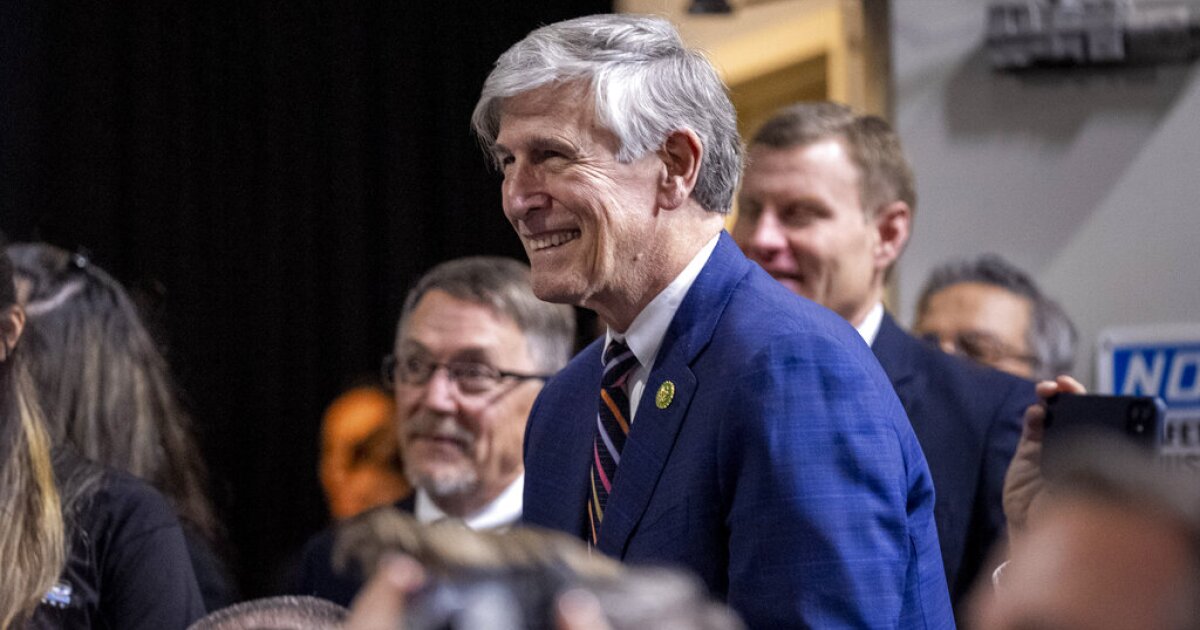

One of the leading House Democrats organizing one of the larger working groups on artificial intelligence is eager to see what the technology becomes but remains uncertain that the tools to rein it in through regulation are out there yet.
Rep. Don Beyer (D-VA) is one of the vice chairs of the New Democratic Coalition’s A.I. Working Group. The Virginia Democrat has taken several notable steps toward understanding the technology, including even going back to school. The working group, which represents more than 100 Democrats in the House, is attempting to develop bipartisan policy approaches for how to ensure AI is properly used. Now Beyer wants to ensure there are proper guidelines in place to ensure the technology is safe and useful for all.
REPUBLICAN DEBATE: CAN THE DEBATES HELP WINNOW THE GOP FIELD?
“The AI community doesn’t really need a lot of Congress’ help,” Beyer told the Washington Examiner. “They’re doing amazing things without us. The concern more from the governmental standpoint is what guardrails need to be put in place.”
There is a debate within the tech industry about how to best rein in artificial intelligence. Some have called for an entirely new agency to spearhead the process, including OpenAI CEO Sam Altman. Other groups, including Google, have claimed that the tools to properly rein in the technology have already been set up since A.I. is just using new technology to deal with old problems such as scams or bias.
Beyer said he was in favor of establishing an agency to handle the matter.
Beyer pointed to the National Institute of Standards and Technology being the best existing agency for handling the matter by itself due to it having the “very best protocol on how AI can and should be used.” The one thing limiting it is that it lacks the ability to regulate or penalize companies if they fail to follow the protocols or guardrails as they’re set.
He also doesn’t trust the companies to do it themselves. He noted the seven companies who signed agreements with the White House to adopt ethical guidelines for training AI, but he does not believe these agreements were enough.
“It was the first step towards self-regulation, which I don’t trust,” he said. “I don’t think ultimately the American people will trust it either.”
That’s why he argues that a separate regulatory agency is required. He also claimed that a “Geneva Convention on artificial intelligence” may be needed but that lawmakers need to focus on national policies before going international. Beyer’s remarks resemble Altman’s, who argued for the AI equivalent of the International Atomic Energy Agency.
CLICK HERE TO READ MORE FROM THE WASHINGTON EXAMINER
As Congress returns to session in September, it will have an assortment of bills to consider regarding how to best handle AI. These vary in details, from task forces dedicated to understanding the technology to barring AI from access to nuclear weapons. House Leadership is eager to see AI properly regulated, Beyer claimed, but other legislation is expected to take priority as the House still has to pass legislation to keep the government open. But Beyers is confident that AI-related legislation will pass by the end of the year. Senate Majority Leader Chuck Schumer has made similar promises, as he has organized several briefings and hearings for Senators to catch up on the technology’s future.
The New Democratic Coalition announced its A.I. working group on Aug. 16, which Beyer leads alongside Rep. Derek Kilmer (D-WA), Jeff Jackson (D-NC), Sara Jacobs (D-CA), Susie Lee (D-NV) and Haley Stevens (D-MI). Beyer is uniquely qualified to handle the role due to his moonlighting as a graduate student at George Mason University to get a Master’s Degree in machine learning, the technology used to power AI.





